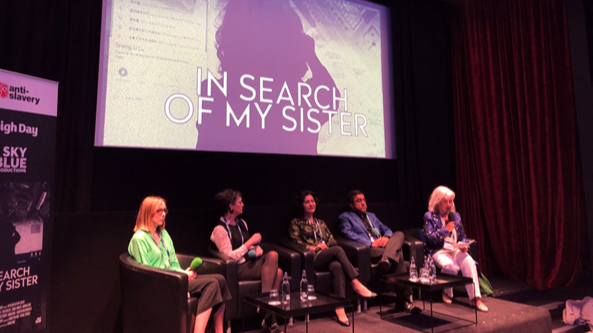The founder of Campaign for Uyghurs has called for “tangible action” from the government to stop forced labour in North Western China.
American Uyghur activist Rushan Abbas, who launched the non-profit organisation in 2017, said that continuing “business as usual” with China is equivalent to supporting forced labour.
The Uyghurs are a mostly Muslim minority ethnic group of around 12 million people living in the North Western region of Xinjiang.
Last year, former UK foreign secretary Dominic Raab made an impassioned speech to the House of Commons in which he recognised human rights violations currently targeting the Uyghur people.
Raab spoke about the detention of more than a million Uyghurs in political “re-education” camps, invasive surveillance, systematic restrictions on Uyghur culture, along with the involuntary sterilisation of women, torture, and the widespread use of forced labour.
On Tuesday, at a private screening of a documentary about the forced labour of the Uyghur people, Abbas urged the British government to pass legislation similar to the Uyghur Forced Labour Prevention Act, signed into law by US president Biden last year.
The Act bans the importation of goods and merchandise produced, mined, or manufactured wholly or in part in the Xinjiang Uyghur Autonomous Region of the People’s Republic of China.
In Search of My Sister, filmed across more than 12 countries, follows Abbas’ journey to finding her missing sister, who is being detained by the Chinese government.
In 2021, the British government announced a set of measures designed to make sure that UK businesses are not part of the supply chains connected to internment camps in Xinjiang.
Anti-Slavery International, which hosted the film viewing, points out that the government's guidelines don't legally oblige retailers and other companies to cut ties with modern slavery.
At the screening, Professor Laura Murphy, who conducts research on human rights issues and contemporary slavery at Sheffield Hallam University, talked about the importance of tracking supply chains out of internment camps and identifying how western supply chains are impacted by the human rights crisis.
Murphy suggested that many industries, including those involved in cotton production, are strategically being moved to the region. She claimed that this move intentionally makes it more difficult for companies to cut ties with the region.
She also claimed that China is mixing its cotton with cotton from other countries, so that importers are unaware of the origin of the product.
According to the Center for Global Policy, the Xinjiang region produces more than 20 per cent of the world's cotton.
Chloe Cranston, business and human rights manager at Anti-Slavery International, told guests at the event that the infiltration of forced labour from the region was so vast that at least one person in the room was likely to be wearing a garment connected to human rights abuses in Xinjiang.
Image (from left to right): Chloe Cranston, Laura Murphy, Rushan Abbas, Jawad Mir (director), and Helena Kennedy
Latest News
-
Asos upskills 100 designers in genAI
-
Amazon to produce recycled packaging in partnership with Indian university
-
Gymshark appoints new CCO
-
Co-op ordered to revise price match adverts after watchdog finds misleading comparisons
-
Coty partners with OpenAI to implement AI tools
-
Game closes final standalone stores as administration marks end of High Street era
Beyond Channels: Redefining retail with Unified Commerce
This Retail Systems fireside chat with Nikki Baird, Vice President, Strategy & Product at Aptos will explore how unified commerce strategies enable retailers to tear down these barriers and unlock new levels of operational agility and customer satisfaction.
The future of self-checkout: Building a system that works for consumers and retailers
In this webinar, industry leaders discussed what the future of self-checkout looks like and how retailers can make the technology work for everyone.
© 2024 Perspective Publishing Privacy & Cookies










Recent Stories